
Tragically, on April 12th of 1966, Jan was in a car accident, suffering severe head injuries, just a short distance from Dead Man’s Curve in Beverly Hills, California. In a coma for over 2 months, when Jan awoke, he sadly was never the same. Now more than five decades later, the names Jan and Dean remain an important part of Rock-n-Roll history. Recently we sat down with the down-to-earth Dean Torrence to tell his story about the life and times of Jan & Dean, the recent re-release of their 1966 Filet of Soul album, and much more.
CrypticRock.com – The story of Jan & Dean dates back to your time in high school back in the late ’50s. From there you built a sensational career in Rock-n-Roll as a duo with numerous chart topping hits. Looking back, what has this incredible journey in music been like for you?
Dean Torrence – I had nothing but fun, it was an absolute pleasure. I can hardly remember ever being pissed off at anything, it just was a great journey. Jan and I got along, we were best of friends. We weren’t probably the best singers in the world, but we made pretty damn good records. To have those records still out there and being played I think says a lot for how well they were done, and the production quality and kind of everything involved. So, all in all, I had a great time; I wouldn’t trade it for anything.
CrypticRock.com – It sounds like it was a great time. Rock-n-Roll has certainly changed over the years, but your music was really pioneering as far as a California surf type of sound. How would you describe the popularity of that style of music in the ’60s?
Dean Torrence – I think we built upon the fact that we recognized early on that there was a whole lot of interest in Southern California, and kind of the Southern California surf culture and the car culture. In the beginning, we didn’t understand it because, quite honestly, as young people it never occurred to us that all teenagers were enjoying what we were enjoying. It wasn’t until somewhat later that we realized this was pretty damn unique stuff that was going on here in Southern Cal. Based on that, we just thought since there is interest and young people seem to really enjoy hearing about what’s going on and seeing what’s going on here, we may as well be one of those voices that is giving it to them.
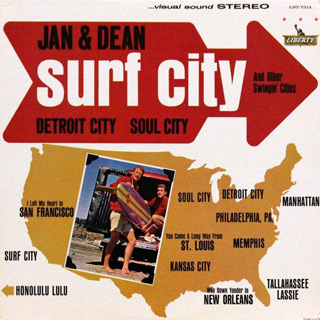
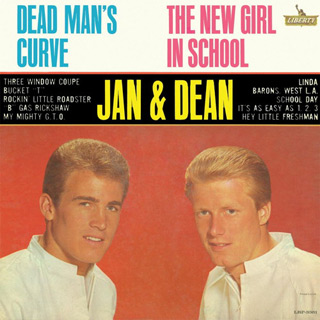
CrypticRock.com – Very cool. When you look back on it and you look at today, in 2017, California really has preserved that slice of American pie and American culture really well through the years.
Dean Torrence – The bottom line is the weather. I don’t know about global warming but it ain’t here: it’s always about the same temperature. I’ve lived in Huntington Beach now for 25 years and I’ve spent most of my teenage summers kind of relatively close to here and it’s always been kind of the same temperature. It’s always 74. I guess from time to time it will get a little cold, but at Christmas time it’s 74 or 75. The middle of summer can be 74 or 75. So the weather without the humidity just makes for an outdoor lifestyle; it just came naturally because of the climate. This climate hasn’t changed so we’re still unique.
I’ve been to just about every state in the union and every one is kind of unique in its own way. Certainly outside the United States is unique, but I haven’t found this kind of consistent climate anywhere. I’m sitting here right now five minutes from the beach and we have an ocean breeze, as usual, which is absolutely wonderful. I don’t know if I could live anywhere else.
CrypticRock.com – You cannot beat the weather in California, that is for sure.
Dean Torrence – I’ve learned that kind of early on, even in school—I graduated from USC—I spent relatively a lot of time every New Year’s at the Rose Bowl, at the game and/or watching it on TV, and I think that the media would always just drool over the fact that—in the rest of the world it was already starting to get dark early, it was January, it was probably cold elsewhere – but in Pasadena at the Rose Bowl there are students without shirts and suntan lotion on and zinc oxide on their noses.
Then the blimp would fly out over the ocean and give you the ocean shots. I can just imagine people, and even more so young people from other parts of the United States and on the East Coast kind of looking at that and going, “What the hell is all that about? That’s pretty wild.” Then you get more and more people drifting this way: it seems like every time there’s a Rose Bowl there’s a big influx of people coming to visit and looking for a place to buy.
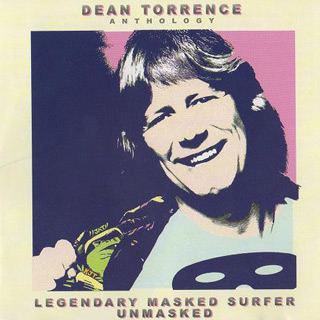
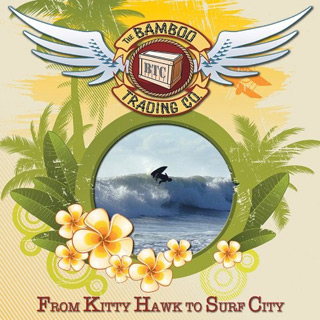
CrypticRock.com – There really is a lot special about California. Now, as you said, you and Jan were essentially best friends. You went to high school together, you played football together, you really grew up together. What was it like working side by side with him all those years?
Dean Torrence – As I said, we were best friends that just happened to enjoy making music. We probably would have enjoyed being on sports teams for as long as we could have been, or going to the beach and playing volleyball. But there also was this love of making music and so it was like best friends making music instead of partners in a business making music. We always kind of treated it that way.
That’s why we stayed in school, in college and actually did graduate with degrees. Jan was pre-med at UCLA all during the time we were making some of these records. He minored in music so he would actually get grades for some of the arrangements he would write for the Jan and Dean recordings. It was like a two-fer. (Laughs) An arrangement that you would have to do anyways, and then submit it to the professor and get a grade. (Laughs) Pretty cool!
CrypticRock.com – That is very fascinating. Back in 1966 you released the Filet of Soul album which had its fair share of success, and now 50 years later coming up with this new release. What inspired putting this collection together and officially releasing it?
Dean Torrence – Oh, you’d have to ask the boys that put it out. I know I always loved the original way that we put together the package. It’s kind of a long story and I suppose if you read the liner notes you’ll understand it.
We needed to get out of that record company; we had been with them a pretty long time. We had one more album we owed them, and we were also going to be having our own television show that was going to debut right about that time, within months. We would have gone head-to-head with The Monkees: The Monkees show was debuting the same season, I guess it was 1960-ish. We were on opposite channels, we wouldn’t have been head-to-head, but their show would be on, ours would be on. We already had hit records, so I’m guessing we would have been pretty much ahead of them in terms of having a fanbase; it would have been pretty damn powerful as it was for them.
We just really wanted to finish off our contract with Liberty Records, the independent label we were with. We planned to have our own record company and be distributed by a major label, which probably would have been Capitol—The Beach Boys were on Capitol and we worked a lot with The Beach Boys. This way, we could officially work together. We had it all planned.: The Beach Boys would be guests on our show. We thought that would really make for a very, very strong partnership. So that was the idea. Obviously it didn’t work out that way. We were looking for an easy package to do. The easiest ones to do were live ones where you could record something all in one night and not have to spend three or four months. Do it all in one night, maybe two nights, edit it, put it together, and you can throw some of your hits in there and the record company should be happy with that. They should be! (Laughs)
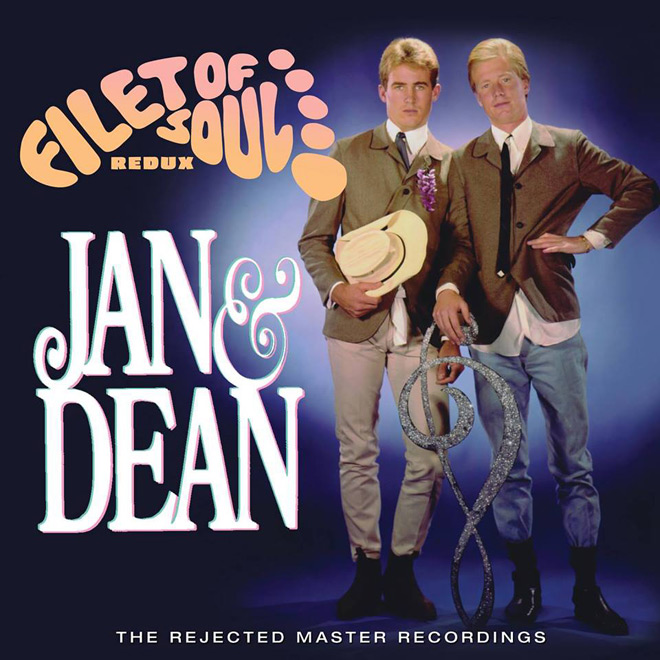
But when we delivered it, I guess they didn’t understand our humor; we were also trying to work into the recording because the television show was going to contain a lot of humor. So we’re kind of telegraphing the direction we’re going in by this package, but the record company didn’t understand it, mostly because they didn’t know what the television show was about. They never bothered to ask. So they turned it down and said they wouldn’t accept it, so we were still, in theory, signed to them until they accepted the last package. They said, “Go into the studio and take out all the comedy. Just put music in there because, my god, that’s what we’re in, we’re in the music business.”
We went back to the studio. We made it worse: we put in more comedy! (Laughs) I think we added one extra song that they hadn’t heard before. We did more comedy and I think we didn’t even bother to meet with them: we just dropped it off at the reception desk and moved on. We figured with the power of the television show and everything else we were doing that we could just address it later if they still turned it down. There would probably be some sort of lawsuit probably, but we didn’t really think we needed to worry about that; we had too much going on that was pretty good stuff and we’d cross that bridge when we got to it.
Unfortunately, Jan crashed maybe four or five weeks after we delivered the package, and it was pretty obvious by the amount of brain damage he had received in the accident that he was probably never going to be the same. I think at that point the record company realized that was the only package they were going to get and with all the publicity that was going on about Jan’s accident, they figured they accepted it, they stripped out all the comedy, threw in songs that weren’t even live songs—it was a terrible package, it didn’t make any sense at all—and put that out thinking now they’ll show us the geniuses they thought they were.
I think it sold 100 copies, maybe: I don’t think it did well, even with all the free advertisement they were getting. Fast forward 45-50 years and our friends at Omnivore heard about the package— I didn’t call them and ask them to do this— they heard about it, contacted me, and I said I had the original tapes in my storage unit. I said, “I’ll bring them to you, you can do whatever you want with them. I’m thrilled somebody cares about it.”
CrypticRock.com – Wow, that is a really fascinating story. It is also very tragic what happened to Jan. Listening to Filet of Soul the way it was intended to be, the way Omnivore released it, it is quite comical. One of the things that really shines through is the fun that you two seemed to be having with it all. Does it bring back fond memories listening to it all these years later?
Dean Torrence –
That’s all I ever really cared about, even before I ever knew it would be released again. I have it on my iTunes and, from time to time, once every year or so, when I just want to remember Jan and remember him before the accident, it was just fun to put that on. I can hear it, I can remember it, so it’s very visceral for me to listen to that and then really hear him laugh. He’s not making that laugh up: he is enjoying himself, I’m enjoying myself, the band are all enjoying themselves.
Those guys were the wrecking crew: they were the best in the business, and here they were on stage with us after being on most of your hit records; these guys were all still friends,and we were giving them the opportunity to play live which they didn’t often get to do. They were such stars within the business, even on the recording we spent time introducing each and every one, including the whole horn section and I think we had a percussionist—we had all sorts of people to introduce. Of course, the record company goes, “Why would you waste all that time introducing people?” (Laughs) My god! They obviously didn’t get it but we did. Our bandmates absolutely loved being there on-stage with us for an evening. We actually did two evenings, in case we screwed up any technical crap.
It’s a great thing! I’m happy to hear that you were entertained by it. You kind of have to know the story to know that it was kind of a big put-on: we were trying to pull something off on the record company. I think that makes it more fun.
The Beach Boys were using a lot of film right around the mid-60s, but we still hadn’t thought about filming stuff. We should have filmed our first meeting with the record company when we presented the demo that we initially gave them, and have close-ups of their faces and their suits when they first heard that. They just really thought that they knew we were jokers, so they thought it was some sort of huge joke and they kept waiting on us to hand them a real record. So if you kind of know the story and you can kind of picture the whole thing as you’re listening to it, that’s kind of the range that that whole thing has. I don’t know if it will translate to the fans or not but I think it will. I guess we’ll find out now, won’t we?
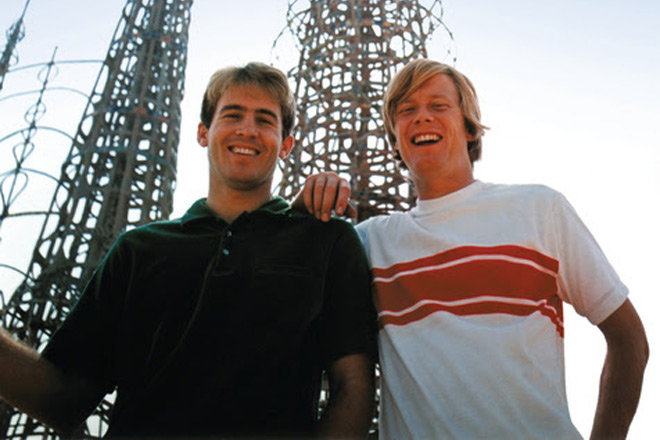
CrypticRock.com – Hearing the backstory certainly does help. The whole story is really compelling.
Dean Torrence – Even if you only listen to it once and then put it away and bring it out six months later and play it for somebody, it is one of those things. It’s certainly not Pet Sounds (1966), if you know what I mean. I think it’s interesting: it’s not particularly musical but it’s a live musical mixed in with comedy.
I just saw Steve Martin play, well about two years ago, when he was promoting his musical CD, The Crow (2009). He’s a damn good banjo player! I’ve known Steve for fifty years: he was friends with the Nitty Gritty Dirt Band, who are friends of mine, as well. He did this wonderful concert here at one of our performing arts centers, mixing his Bluegrass banjo-playing and comedy, he did some of his stand-up in between. It was quite unusual but in the right context, it’s pretty powerful. So obviously it can be done
CrypticRock.com – Absolutely. Listening to this has a similar feel to The Beatles BBC sessions, which are clips from multiple shows but it has that similar feel, the comedy and the goofing around which is endearing.
Dean Torrence – Yeah, I’m a huge Beatles fan! The whole Filet of Soul thing was more or less a parody on Rubber Soul (1965). In the liner notes I discuss that, I think, pretty well, to understand how it’s somewhat paralleled, not musically, but in presentation. They were the ones that were the trendsetters. We were kind of doing those things anyway but the media really didn’t quite understand it, and certainly the record industry didn’t particularly understand it; but it took them to kind of push it through.
Once people saw, well, The Beatles did it, then it was a whole new ballgame! But up until then, the record industry was pretty old-fashioned. It had a bunch of leftovers from the middle-of-the-road days and a lot of those people, especially at the top because those guys were hard to fire, those were the guys that were controlling what was going on. It took quite a revolution for them to kind of get phased out. We were right there in the middle of it. Unfortunately the accident happened and we weren’t able to continue on, which would have been fun.
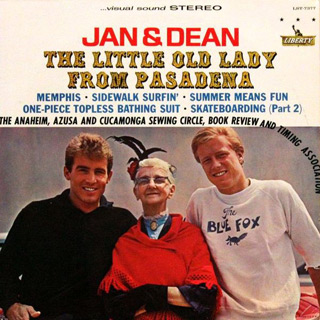
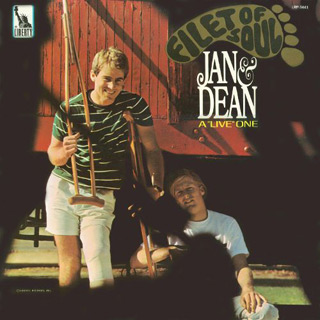
CrypticRock.com – That is understandable. It is a terrible thing that happened, but there are very fond memories prior to that and such. You mentioned The Beatles and that they were an influence. Tell us about your other musical influences throughout the years.
Dean Torrence – It’s hard to pinpoint. So their persona thing was really well-done, that was kind of from the get-go. Their lackadaisical kind of whole schtick thing that they did was kind of what we were doing anyway, so we kind of understood all of that. Their packaging started to get integrated into what they did: it was another strong component of what they were doing. Then their music: it got exponentially better as they went along, so, of course, we were intrigued by all their arrangements and their production.
Jan was super entranced with their arrangements; he started writing even more complicated arrangements of stuff just because now it was fashionable, and the record companies let you do it because The Beatles did it. So it was all good! The timing was absolutely perfect that they came along right when we were at our height in terms of hit records in the mid-60s. Again, them coming along just made everything that much bigger and better.
CrypticRock.com – They certainly did revolutionize a lot of things in Rock-n-Roll. You mentioned how it became fashionable for big, complicated arrangements. The Beach Boys’ Brian Wilson – genius arranger, genius songwriter – had a little bit of traction when he wanted to go in different directions. Do you have memories of what was going on with him at the time?
Dean Torrence – Typical record company crap. They want “409,” they want another one of those. “Why are you taking so damn long?” I guess Filet of Soul was in our way our Beach Boys party LP. Brian only did that party LP because, well, it was something he kind of wanted to get to someday, but he was in the middle of creating “Good Vibrations” and Pet Sounds. Of course, the record company was calling every day asking, “Where’s the record? Why are you taking so long?” They’re not into art, they’re into product and getting product into the pipeline. They really don’t give a rat’s ass. They wouldn’t know a hit if it flew up their butts!
Brian was trying to figure out how to give them something that would keep them busy, and he knew he could buy himself a good, maybe six months if he gave them something that at least had some sort of value to it. That’s when he came up with the concept of the party record that we were supposed to be on, as well. Our record companies feuded and screwed all that up. I got on there anyway but couldn’t be credited with being on there. It’s funny that some 40 years later I finally did get credit, though. It was just a project to keep them busy so that they wouldn’t be pestering him. Meanwhile he created a very, very beautiful record: that being Pet Sounds.
Of course, “Barbara Anne” became such a huge hit off the party album that they hear Pet Sounds and they don’t really like it. They don’t think that’s Beach Boys-esque. “Do another ‘Barbara Anne’ for god’s sake.” They just put out a fifty-year anniversary of “Barbara Anne,” I think it is, or actually, the party record. The three takes of “Barbara Anne” – that’s all it took – it was done in six, seven – I used to know – eight minutes, only eight minutes. In eight minutes, he cut one of the top-selling singles he ever did, and the record company’s looking at that going, “Why would you do ‘God Only Knows’ or ‘Wouldn’t It Be Nice.’ Just do another ‘Barbara Anne,’ for god’s sake. What’s wrong with you people?” So, that’s always the pushback you’re going to get.
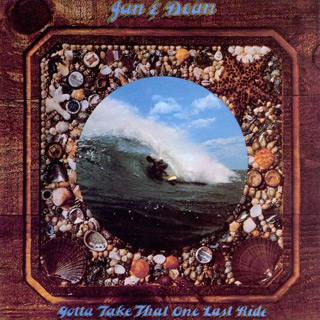
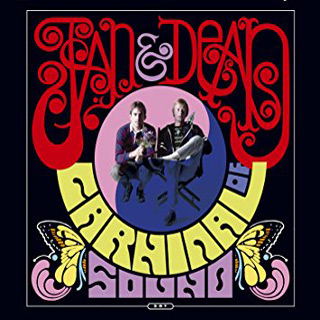
CrypticRock.com – Unfortunately in the eyes of labels it is all about money, like you said. You wrote a book last year called Surf City: The Jan and Dean Story. This is a very personal recount about those times. Was it difficult to write this book or was it easy to write for you?
Dean Torrence – I wrote it over a maybe five year period of time. I thought of it as me trying to write down what I remembered. I wasn’t writing necessarily in terms of thinking of a book, I was just trying to remember everything and make sure that I got it down while I remembered it. I also was traveling a lot. This was mostly, I think it started in the mid-80s, and I would be on airplanes and you don’t have anything to do. You’re sitting there and you’re going to read something, and, in my mind, you’re reading someone else’s work. You know, later you were able to watch something on the airplane and that’s somebody else’s work.
I just thought if I’m going to be sitting here, I might as well bring a notebook with me and just, in chronological order, write down stuff that I remembered and that interested me. Thank god I did! Twenty years later I looked back and went, “I wrote that down, now I remember it.” Would I have remembered it if I needed to write this thing last year? Maybe, maybe not.
So it wasn’t that difficult to do because I didn’t have a timeline, I didn’t have a publisher calling me once a week wanting to know where it is. It was kind of organic, it just kind of happened. I had almost like Filet of Soul: I had a buddy that knew I had the stuff and he mentioned it to a book agent. The book agent happened to be a fan, and the book agent contacted me and said, “How quickly can you put a book together?” I had it 95% written, although it’s in handwriting, I didn’t type it because I was on an airplane. So it would take me some time to transcribe it, but other than that it’s kind of written. So there was no pressure. I loved it, it was fun.
CrypticRock.com – It is almost like a personal journal and that is very inspiring.
Dean Torrence – I don’t read much because I’ve got so many things I’m interested in it’s hard to sit down. I have A.D.D. too, so I don’t spend a lot of time sitting and reading. I really don’t know much about being an author and being a “writer,” but I’ve always been told that I was a pretty good storyteller so that was my approach, was telling the story. Someone would ask, “I heard you were on tour in so and so place,” and I would sit down and tell the story; I would tell it like somebody was sitting across from me at lunch.
CrypticRock.com – Very cool. This book is out and you have the CD out now too, so there is a lot of new listening and reading material for people.
Dean Torrence – (Laughs) The book’s done pretty well. It’s kind of a steady seller. Lord knows what will happen with Filet of Soul, but I’m thrilled to now have a real package that goes with the version I have on my iTunes. Having the booklet with the actual story is kind of fun. We’ll find out, I guess. I didn’t have to pay for it, which was neat. Let somebody else pay for it and if it works, I hope it makes money, too.
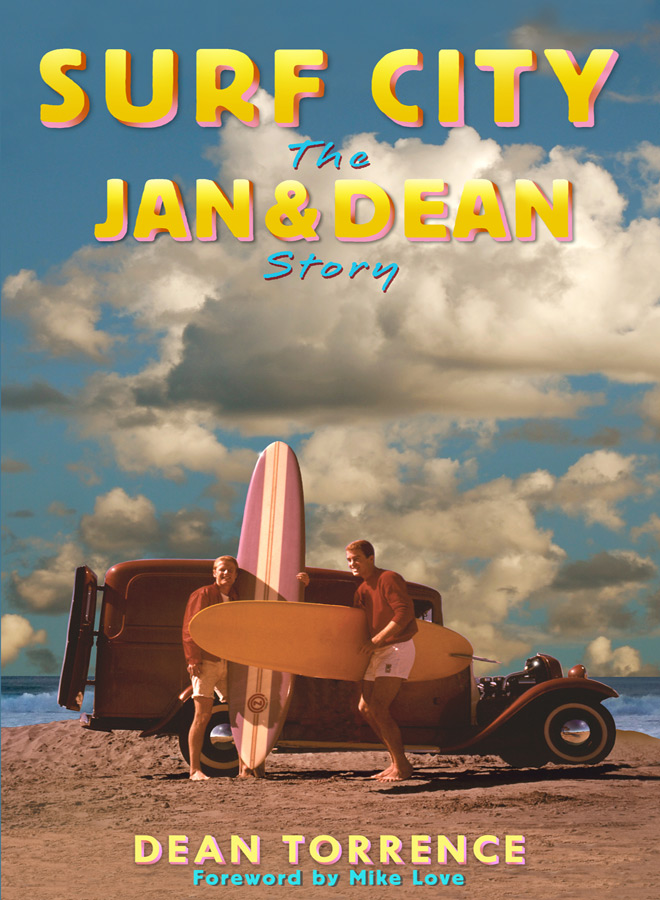
CrypticRock.com – There is no question fans will enjoy this. Our last question pertains to films. On CrypticRock we cover both music as well as movies, particularly Horror/Sci-Fi. That said, are you a fan of Horror and Science-Fiction and do you have any favorites?
Dean Torrence – I don’t go to the movies very often. My favorite movies have usually always been Comedies. It’s A Mad Mad Mad Mad World (1963) is still one of my all-time favorites. Jan and Dean were going to do a movie one time—that’s in the book, too. There was a train-wreck on our first day of shooting. (Laughs) We’ve had weird luck! It never got done, but it was along the lines of It’s A Mad Mad Mad Mad World because we were such big fans. I actually got to meet Jonathan Winters maybe five or six years ago. It was a big thrill for me, I had him sign a poster.
Those other genres, every once in a while I’ll watch them on TV. I did some music for an odd, little film called The Return of the Killer Shrews (2012). Anyway, I did the music and my daughters sang the title song. That’s as close as I’ve gotten to actually being involved in the movie business.
CrypticRock.com – That is pretty cool. It is a follow-up to the 1959 film Killer Shrews.
Dean Torrence – Yeah. “Shrewd Awakening” was the title of the title song. That was kind of clever. I got to sing with my two daughters; it was really cool being able to do a recording with my girls. They sang the lead and I just kind of sang a little background with them.
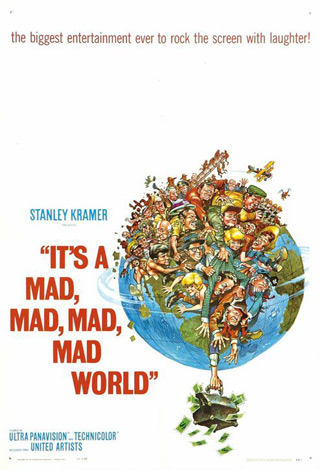
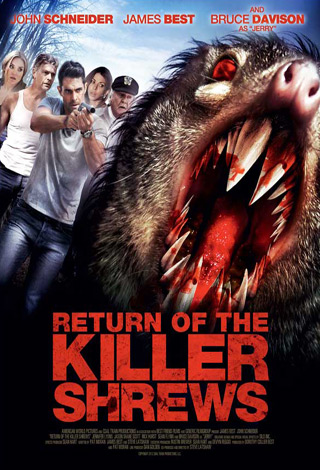
CrypticRock.com – It sounds as if it was a lot of fun.
Dean Torrence – It was great fun. The music was kind of tiki lounge-type music, which was kind of bizarre so it fit right in with the humor. It was kind of tongue-n-cheek. It was supposed to be somewhat funny, I think. I thought it was funny. A weird little film.
One of the leading stars in the film was Bruce Davidson, who played my part in Dead Man’s Curve (1978). He actually sang a couple little background things on some of the songs. It was fun to be in the studio with him again. I hadn’t really seen him since he’d done the Dead Man’s Curve film way back in the late ’70s. Anyway, another little interesting piece of trivia.
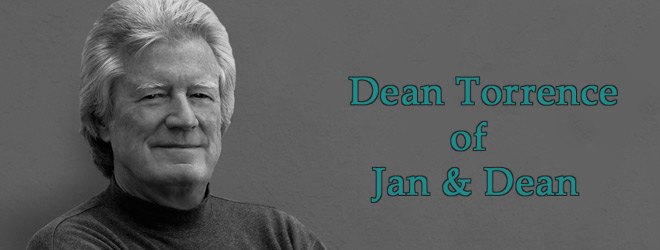

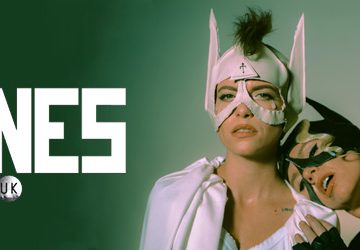


No comment